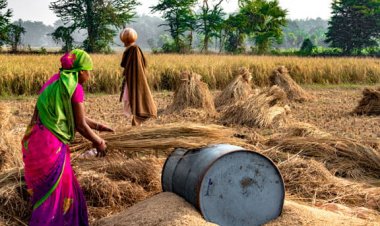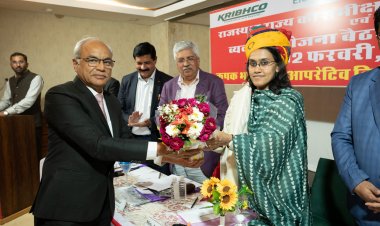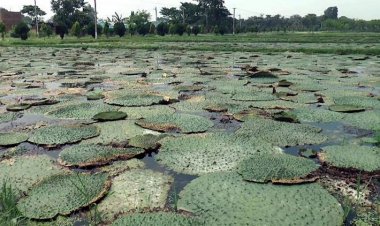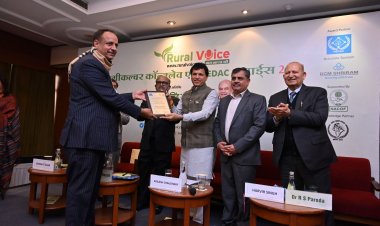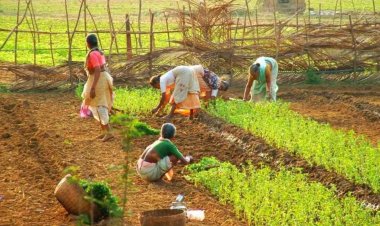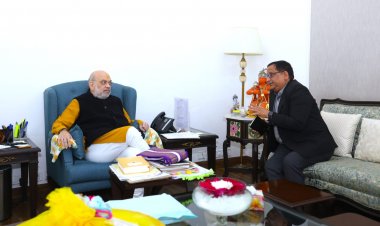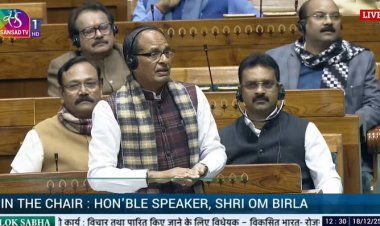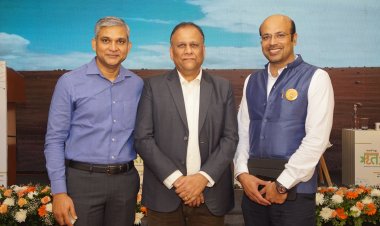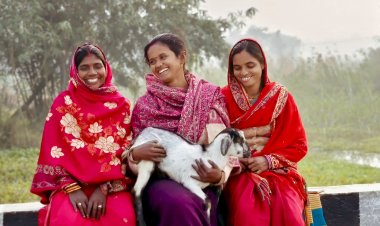SC-appointed committee on farm laws submits its report; will the hearing resume?
The committee appointed by the SC to resolve the ongoing dispute over the three new farm laws of the Central Government has submitted its report. However, nothing is known about the recommendations of the committee as yet. CJI SA Bobde is due to retire on April 23. Given this, it has become much significant whether the SC will make the report public or resume the hearing in this case on its basis before the CJI retires. The Samyukt Kisan Morcha had refused to go to the committee. It is, therefore, a moot point if the recommendations of the committee will resolve the dispute.
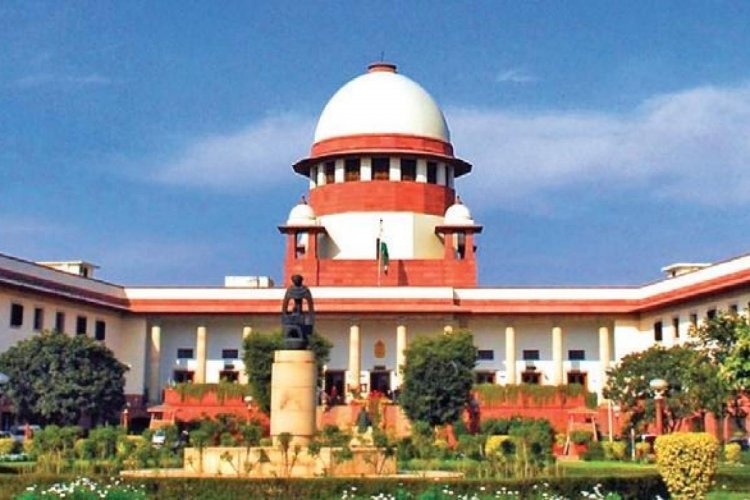
While the farmers’ movement against the three new farm laws made by the Central Government has been continuing on the Delhi borders and the rest of the country for more than four months, it now stands at a crossroads. The committee appointed by the Supreme Court (SC) to resolve the ongoing dispute over the issue has submitted its report to the SC. In a conversation with RuralVoice, one of the members of the committee has confirmed the submission. Although nothing is known about the recommendations of the committee as yet, there are two significant points here. One, Chief Justice of India (CJI) SA Bobde is due to retire on April 23. Given this, will the SC make the report public or resume the hearing in this case on its basis before the CJI retires? Two, the chief organizations of the protesting farmers had refused to go to the committee and they never went before it. It is, therefore, a moot point if the recommendations of the committee will resolve the dispute.
Perhaps nobody had hoped that the three farm laws of the Central Government would lead to an unprecedented farmers’ movement. But the farmers have been protesting in thousands on the borders of Delhi for the last four months. They have been demanding the repealing of the three farm laws — 1) Farmers' Produce Trade and Commerce (Promotion and Facilitation) Act, 2020; 2) Farmers (Empowerment and Protection) Agreement on Price Assurance and Farm Services Act, 2020; and 3) Essential Commodities (Amendment) Act 2020. Protests against these farm laws are continuing on a smaller scale in other parts of the country as well. These laws had been implemented through ordinances in the first week of June 2020 and enacted after they were approved in Parliament in September. The farmers had started protesting these laws right from the ordinance stage and called for a Bharat bandh in September. In November, the movement gathered enough steam. On November 26, the farmers marched to Delhi and have been camping at its borders ever since. With several rounds of talks with the government having failed, there has been an absence of dialogue between the farmer organizations and the government since January 22.
Meanwhile, the SC, during the hearing on this matter, issued an order on January 11 and stayed the implementation of these laws till further orders. On January 12, it appointed a four-member expert committee that would talk to the parties concerned and subsequently submit a report to resolve the issue. Bhupinder Singh Mann, one of the members of the committee, resigned and it now has three members — Ashok Gulati, agricultural economist and Infosys Chair Professor at the Indian Council for Research on International Economic Relations (ICRIER); Pramod Kumar Joshi, former Director (South Asia), International Food Policy Research Institute (IFPRI); and Anil Ghanwat, President, Shetkari Sangathan. The committee had its first meeting on January 15 and last on March 17. During this period, it held 23 meetings with farmers, farmer organizations, businessmen and government officials and also sought opinions from the parties concerned online.
In a conversation with RuralVoice, SC lawyer Virag Gupta says that the committee has no legal recognition. Neither is there any binding that the recommendations of the committee be legally enforced. This is a process of mediation. If both sides agree to the recommendations of the committee the court may issue a consent order. But what is significant here is that one of the parties — the Samyukt Kisan Morcha (SKM) of the protesting farmer organizations — had refused to accept the committee itself. How is a consent order possible in such a situation? Also, it remains to be seen whether the SC makes the recommendations of the committee public or keeps them sealed. There is another point that may shift the entire issue to another context. If the committee makes a recommendation of something like guaranteeing Minimum Support Price (MSP), the court may like to learn about the government’s side of the argument. But then the very issue will be transformed because the actual issue is one of repealing the three laws. The SC has stayed the implementation of the laws till further orders.
On the issue of listing and next hearing Virag Gupta says, in the main matter WP (C ) 1118/2020, Supreme Court directed to post the matter after 8 weeks in the last hearing on 12.01.2021. In other connected case, WP (C ) 1174/2020, Court passed the order on 20.01.2021 and directed to post the matter after 2 weeks. Subsequently, 6 more Writ Petitions are tagged with the main matter by different orders of the Supreme Court. There are around 20 cases filed before Supreme Court by way of different petitions.These matters may be taken up for early hearing after Holi vacations by urgent mentioning before Supreme Court by any of the parties. As per expert committee report Supreme Court may decide early hearing of the matter on its own and may allow disclosure of report to all the parties to get their response. However, Constitutional validity of these laws can only be determined by the Constitutional Bench for which new bench of 5 judges will have to be formed.
Rakesh Tikait, a member of the SKM and national spokesman of the Bharatiya Kisan Union (BKU), said in a conversation with RuralVoice, “We have already made it clear that the issue of the three laws and guarantee on MSP is one between the farmer organisations and the government. We never went to the SC on this issue and neither did we accept the SC-appointed committee. So, we did not think it necessary to put our side of the argument before it. Thus, the recommendations of the committee will not have any impact on the farmers’ movement. The laws have been made by the government, not by the court. So, the issue is one between the farmers and the government and a solution to it can be found only through talks between the two.”
Rakesh Tikait has gone to Karnataka for a farmers’ rally at Belgaum on Wednesday. He has been holding farmer panchayats one after another in Rajasthan, Madhya Pradesh, Karnataka, West Bengal and Haryana. These rallies and panchayats are being held as part of the strategy to carry the movement beyond Delhi, dispel the notion that it is restricted only to Punjab, Haryana and western UP and prove its pan-Indian character. It is in this course that Rakesh Tikait’s farmer dialogue programmes are being organized at Palanpur and Bardoli in Gujarat on April 4-5. Last week, however, the police had detained Yuddhvir Singh, the BKU General Secretary, while he was holding a press conference at Ahmedabad in Gujarat.



 Join the RuralVoice whatsapp group
Join the RuralVoice whatsapp group


















